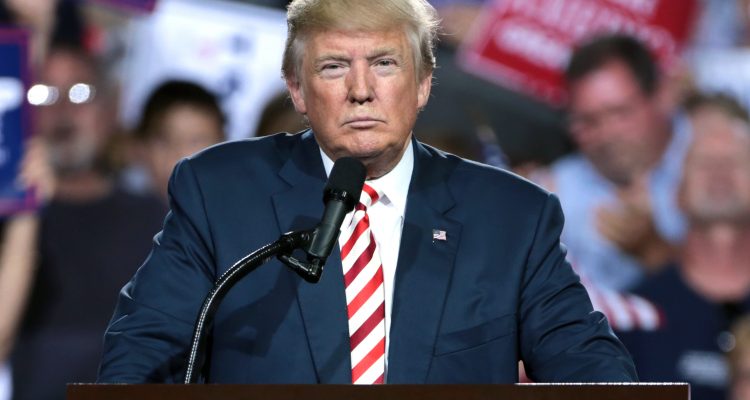What does the constitution really mean in 2018 politics? Sponsored by Civic Education & Democratic Engagement, “In Trump We Trust” gave students the space to discuss the power of American political symbols under the direction of Aaron Weinstein, Ph.D., visiting professor of politics. On Wednesday, Oct. 10 at 5 p.m., students found themselves navigating the murky world of American political thought.
Weinstein framed the conversation regarding President Donald Trump in relation to the concept of America’s civil religion. The American civil religion, or civil faith, is the process by which the American people places symbolic, sacred importance on the founding fathers, the constitution and the declaration of independence. The civil religion often juxtaposes American symbols with Christian symbols, such as when Abraham Lincoln is compared with a risen Jesus Christ in the Apotheosis of Abraham Lincoln. In many ways, the constitution acts like the Bible.
The civil faith places the presidents as moral leaders, and ensures that the ‘sacred texts’ of the United States still have a place in modern politics. Weinstein explained that this concept “connects the American people to the nation.”
As compared to other presidents, Trump does not lean on the constitution, he has not placed himself as a moral leader and does not seem to have regard for the civil faith. While other presidents usually try to encourage the civil religion, Trump has not. Weinstein summed it up with: “2016 is really, really weird.”
The small group of 10 students in John A. Barone Campus Center room 200 discussed the civil religion, the current presidency, Trump and the press and the potential for the changing of political norms in the United States.
Weinstein ultimately posed the question, “What happens to our politics when we stop referring to these documents?” The consensus, among those in the room, was that we don’t know.
“I felt like it was really eye opening to learn in an unaffiliated way of how deeply Trump is badly affecting the way the presidency is seen,” said Melyssa Gagliardi ‘22, “Definitely setting bad standards for future presidents.”
“My main hope for students is for them to hear new perspectives and engage in conversation,” explained Zachary Quiñones ‘18, Civic Engagement coordinator. “I would hope that students would feel more comfortable having conversations like we did with Dr. Weinstein.”
Quiñones continued, “This event will hopefully be the beginning of a new series of events featuring faculty, staff and alumni who wish to engage students in constructive dialogue.”
Other events sponsored by CEDE include the “Across the Aisle” discussions, voter registration tables and a midterm election viewing party on Nov. 6.


Leave a Reply